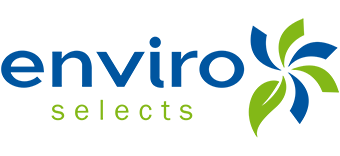ISO 22000 is an international standard for Food Safety Management System to stop the supply chain, which goes from farmers and ranchers, from processing to transport. This standard can be extended to suppliers of non-food products, such as cleaning and equipment manufacturers. ISO 22000 can be used in organizations of any size, and also specifies all requirements for a Food Safety Management System, which generates an interactive communication, system, and program management.
What is the Food Safety Management system?
The ISO 22000 standard is recognized throughout the world food chain and certification – allows for a way of becoming a provider of choice by organizations. The certification standard offers a commitment to food safety by the certified organization. It is based on good cutting-edge practices and is designed to:
- Establish trust with stakeholders.
- Identify, manage, and mitigate food safety risks.
- Reduce and eliminate product recall and claims.
- Protect the organization’s brand.
This standard represents the key elements of a Food Safety Management System:
-
-
- Requirements for Good Manufacturing Practices or Prerequisite Programs.
- Requirements to Develop a HACCP or HACCP System.
- Requirements of a Management System.
-
Why do we need the Food Safety Management System?
The need for Food Safety Management system with ISO standards is generic to apply to all organizations operating within the supply chain. It is to enable them to design and implement a Food Safety Management System, regardless of type, size, and product they generate.
This includes all those organizations directly involved in one or more links in the food chain, such as feed producers, farmers, ranchers, producers of raw materials and food additives, distribution chains, catering, cleaning services, transportation, storage, and distribution of food products. It also concerns the suppliers of equipment for the food industry, cleaning agents, packaging materials and producers of any content in contact with food.
Today, organizations implement and certify their Food Safety Management system, as part of their corporate strategy to adapt to legislative changes, manage and mitigate food safety risks, reduce safety claims, protect their brand and build trust. With all interested parties. As if that were not enough, ISO 22000 is aligned with other ISO Management Systems standards, so it is easy to integrate its management with other systems such as quality, environment, occupational safety, or information security.
Benefits of a food safety management system:
The implementation and certification of a food safety management system provide the following advantages and benefits:
- Give greater confidence in your food products: By offering the consumer a product that meets legal and international requirements.
- Reduce health risks: Since it establishes a system of hazard analysis and control of critical points.
- Protect your brand: Traceability and the product recall program help to deal with safety problems.
- Reduce audit costs: Being a norm of international acceptance.
- Improve the management of your supply chain: Quality and safety can coexist as an open standard.
To keep your vegetation, fruits, and vegetables free from diseases, we recommend you to use SaniDate 5.0 sanitizer/ disinfectant spray. Zerotol 2.0 bactericide/fungicide spray is recommended to diminish plant pathogens and to protect fruits and vegetables.

Leave a Reply
Want to join the discussion?Feel free to contribute!